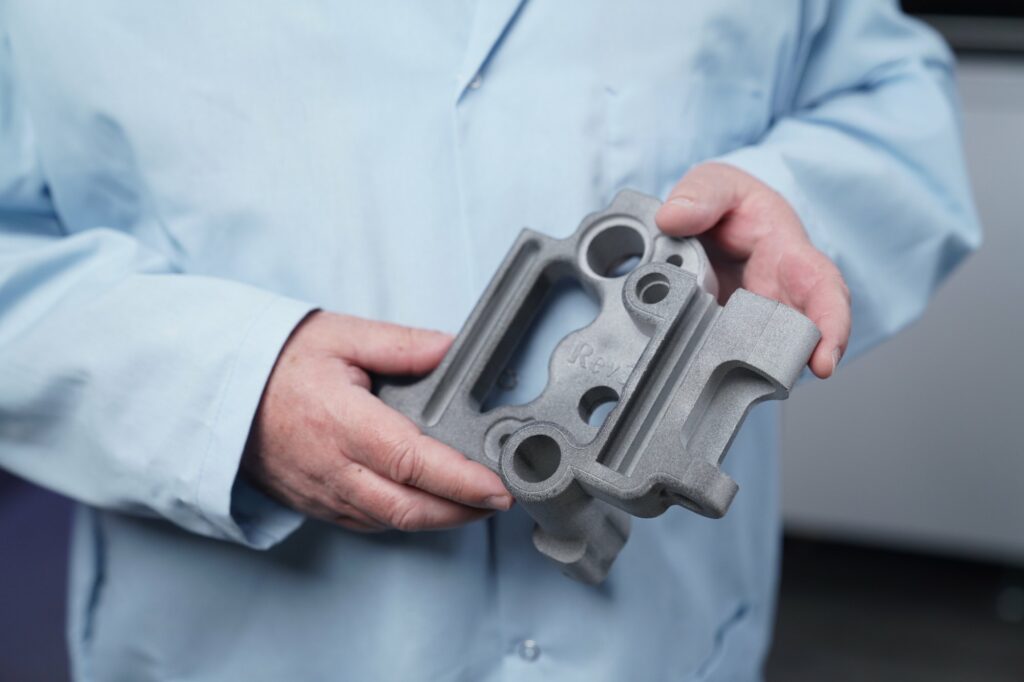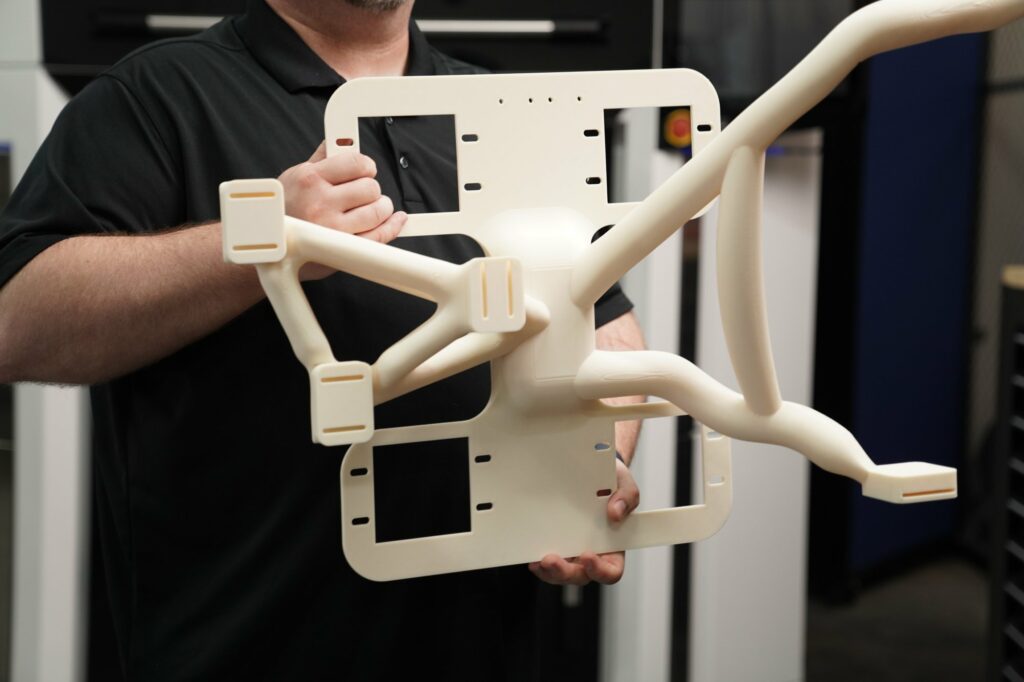
A 3D printed transmission test tool, designed in the Toyota ADD Lab and printed on the Stratasys H350 using PA12 material. (Photo: Stratasys/Business Wire)
Toyota engineers have access to industrial-grade 3D printers and advanced materials that enable them to iterate rapidly and adapt to shifting production needs in real time.
MINNETONKA, Minn. & REHOVOT, Israel—Toyota’s production engineering group is accelerating innovation on the factory floor through its strategic collaboration with additive manufacturing technology company Stratasys Ltd.
The automaker is empowering automotive workers to seamlessly integrate advanced 3D printing technology in their manufacturing process—taking tools, fixtures, and jigs from initial concept to working prototype in just one day, according to a release from Stratasys.
“Toyota is a standout example of how leading manufacturers are leveraging additive manufacturing to deliver meaningful operational impact,” said Stratasys Chief Industrial Business Officer Rich Garrity, in the release. “Their teams are using our technology to move faster, adapt on the fly, and build safer, more efficient production environments. We’re proud to support a partner that’s turning bold ideas into real-world, measurable improvements on the factory floor.”
Through the more than 10-year partnership with Stratasys, Toyota engineers have access to industrial-grade 3D printers and advanced materials designed to withstand tough factory conditions. These Stratasys high-performance polymers are said to reduce reliance on external suppliers and long lead times, giving frontline engineering teams the ability to iterate rapidly and adapt to shifting production needs in real time, the release stated.

An end-of-arm tool 3D printed at the Toyota ADD Lab using the Stratasys F900 3D printer and ASA material. (Photo: Stratasys/Business Wire)
Toyota is currently using the Stratasys F3300, F900, Origin One, F770, Neo800, H350, F370, J850, and Fortus 450mc printers to produce robust factory tooling, end-use parts, and functional prototypes throughout its North American facilities.
See how Toyota is using additive manufacturing in this video.
By integrating Stratasys industrial 3D printing solutions across its North American operations, Toyota can transform ideas into durable, customized tools that support workflows, enhance worker safety, and withstand wear and tear. Much of this work is powered by the Toyota Add Lab, the company’s in-house additive manufacturing center that was opened in January 2023 and dedicated to accelerating R&D and factory innovation.
“Sometimes we start with nothing more than a sketch on paper or an idea in our heads,” said Toyota North America Additive Manufacturing Engineer Dallas Martin, in the release. “We can model it digitally and hold a working part in our hands the very next day. That speed lets us move quickly, implement safer solutions, and continuously iterate to improve our processes.”
The collaboration is said to reflect Stratasys’s broader commitment to helping automotive leaders transform their manufacturing workflows with scalable, cost-effective additive solutions that drive innovation. “From jigs and fixtures to ergonomic aids and complex assembly tools, additive manufacturing is helping Toyota team members solve production challenges with unprecedented speed and flexibility,” according to the release.
“Additive manufacturing has transformed how our teams collaborate and innovate,” said Toyota North America Group Manager-Production Engineering Lisa Bednar, in the release. “Instead of sending an idea out and waiting weeks for a part, we’re building it ourselves, refining it the same day, and getting it into production faster. It’s not just about speed—it’s about giving our people the tools to think differently and act immediately.”
Thanks in part to the Add Lab’s innovations, Toyota engineers have used 3D printing to redesign a door assembly fixture, creating a lighter, more ergonomic tool on-site in just a few days. In another case, they developed a custom window alignment jig that turned a multi-person job into a one-person task, boosting both safety and efficiency, the release said.
Stratasys stated that it is leading the global shift to additive manufacturing with innovative 3D printing technology for industries such as aerospace, automotive, consumer products, and healthcare.
“Through smart and connected 3D printers, polymer materials, a software ecosystem, and parts on demand, Stratasys solutions deliver competitive advantages at every stage in the product value chain,” the company said in the release.
